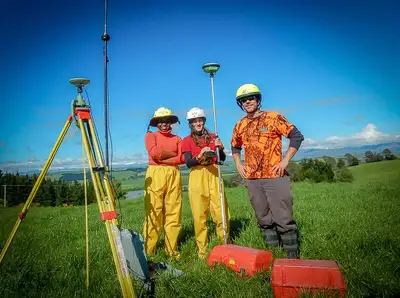
Successful applicants will work with food companies in Hawke's Bay and Bay of Plenty as part of the Master's degree. Image: Freepik.
Massey University and horticulture companies in Hawke’s Bay and Bay of Plenty are seeking applicants who want to complete a Master of Engineering focused on developing agritech solutions to overcome challenges in the food industry.
Applications are now open for the one-year research-based course that will be based at both the Massey AgriFood Digital Lab in Manawatū and one of the six companies which include Zespri, Rocket Apples, and Deartech.
To attract people, six industry-funded tax-free stipends of $20,000 each are up for grabs and they are hoping to have students confirmed by the end of this year. To be eligible, appliants must have an undergraduate degree or equivalent industry experience.
Professor of Robotics Johan Potgieter says it is a unique opportunity for someone with an undergraduate degree or experience in engineering, electronics, robotics, IT, computer science, web development, coding and other related fields, to upskill and apply research to develop the agrifood sector.
The students will work closely with industry experts, spend time with the companies and will be supervised by the university’s academic experts. They will undertake genuine intellectual property development and work with companies who will provide feedback and tweaks in real time.
“This Master’s programme will provide the opportunity to work closely with the sponsoring company on industry-based problems to achieve real commercial outcomes. The best part about this is that the student will be positioned at Massey and within the companies, so there’s genuine job experience too.”
Professor Potgieter is working with Professor Andrew East to grow the Massey AgriFood Digital Lab, a research centre that’s industry focused and funded, and run by successful professors who specialise in robotics, mechanisations, precision agriculture and postharvest horticulture.
“We’re a bunch of academics with scientific capability who are driven to deliver change in New Zealand’s industry by solving real problems and doing so at the scientific and technology edge,” Professor East says.
Their goal is to develop a large and sustainable school of postgraduate students to meet the current and future needs of the agritech sector, an industry that’s worth $1.5 billion to New Zealand in exports, that supports the $46.4 billion primary sector export industry (year to June 2019).
“The lack of technical skills in the agrifood industry is one of the biggest barriers to its growth, so that’s what we’re trying to do here. We need tech people to be more familiar with agriculture opportunities and more people in agriculture to be more fluent in communicating, using, adopting and applying tech.”
He says there is huge demand for highly skilled people who are working in highly competitive industries and may not have considered working in agrifood.
“So that’s our focus as a university and research group, to generate people with the skills that are required in agritech because even if we develop the technology, if we don’t have people with the right skills we will never be able to execute and update the technology, which drives growth.”

Students in the field working with the Massey AgriFood Digital Lab.
What is agritech?
Professor East says careers in agritech require problem solving skills and adaptation of specific tech capabilities in for example computing, design and build of robots and IoT devices, as well as analysing data to enable new and better decisions to be made. Decisions need to be made that are focused on how the solution will deliver value to the end user and the industry.
“It’s about finding solutions that are better than what’s currently being done, taking into account cost, speed, robustness, time efficiency and ease of use.”
Those solutions are then applied to industries like agriculture, aquaculture, horticulture and forestry for the economic benefit of a company, industry and Aotearoa.
Challenges facing the agrifood and agritech sectors
“The challenge we have at the moment is we have people who know how to build robots but they know nothing about how to train a tree for productivity or the factors that influence beef productivity on farm. Likewise, we have people who are experts in growing tomatoes in a greenhouse, but may know little about how to extract new insights using data analytics which may allow them to further tune productivity of the plant.
“What we are focused on is how we can bring those worlds together and get them communicating the same language, so they can develop technology as a solution that solves an appropriate problem at the right price point and with minimal adoption barriers”
Professor Potgieter says the Master of Engineering and the outcomes of the projects will be one of the solutions for the companies, sector and the successful students.
“This will be a ladder to climbing quite high in the industry, straight away. The ultimate reward and outcome for these students is the potential for employment in some of New Zealand’s great regions in sectors that are key to New Zealand’s next economic growth and COVID recovery."
Apply today
Applicants can send their CV to Professor Johan Potgieter by emailing him: j.potgieter@massey.ac.nz